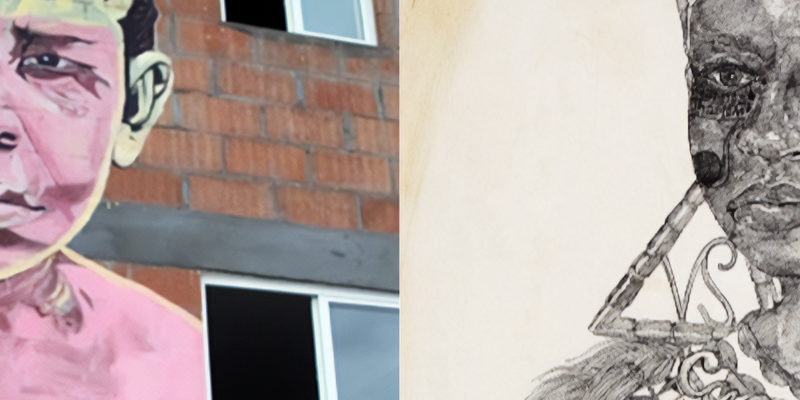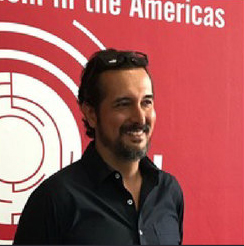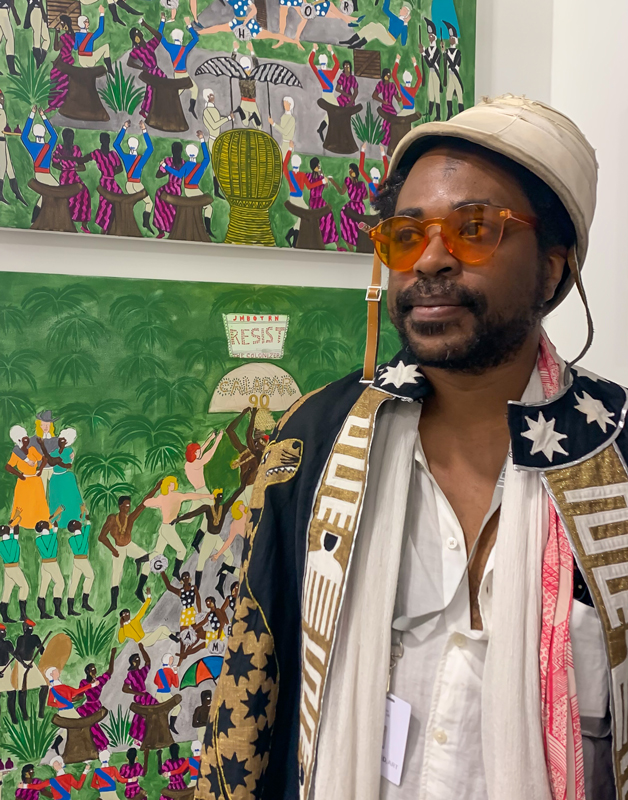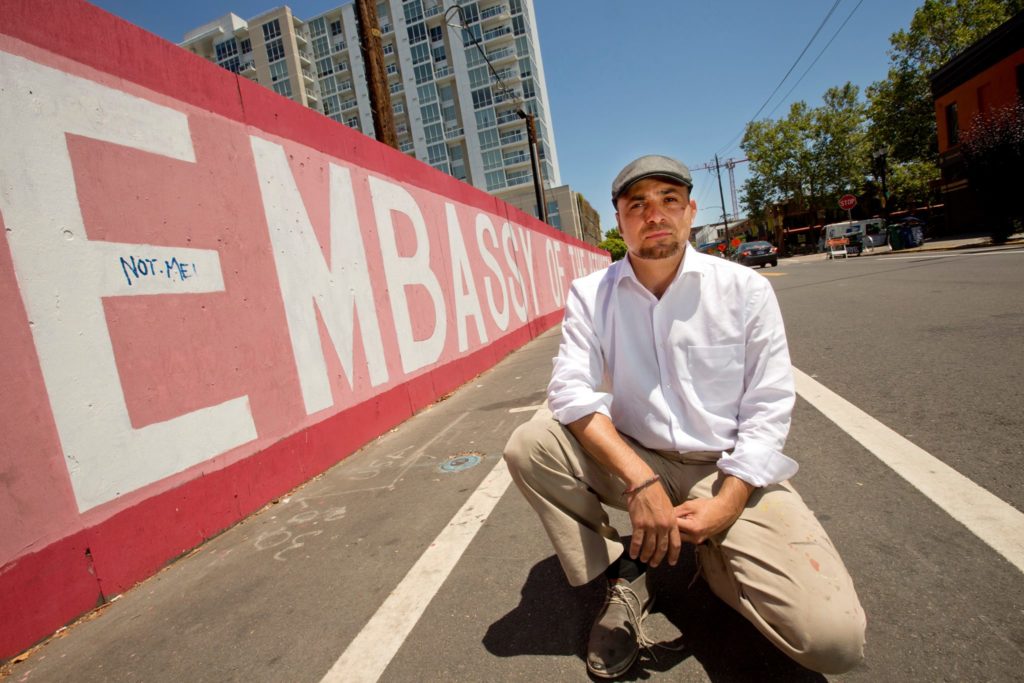
March 8, 2022, at 5 p.m. PST
Co-sponsored by SF State, Grand Central Art Center, CSU Bakersfield, CSU Dominguez Hills, CSU Fullerton, CSU Sacramento, and CSU Northridge.
Pictured above: (Left) From “Walk the Beast” by Caleb Duarte. (Right) “Isabel, Queen of Harlem” by Umar Rashid.
About the Speakers
Umar Rashid (also known as Frohawk Two Feathers) employs writing, illustration, painting, and sculpture to construct fabulations or, put simply, alternative historical narratives that reference a panoply of cultures, collapsing geography and time. At the core of his practice is a reimagining of romantic history painting and eighteenth-century colonial scenes. Rashid steers clear of simplistic dichotomies, challenging the viewer with a complex iconographic language of arcane classifying systems, maps, and cosmological diagrams. His work is informed by recognizable cultural references, whether historical materials such as Egyptian hieroglyphs, ledger art, Persian miniature painting, and illustrated Spanish colonial manuscripts or more contemporary phenomena such as the hip-hop era of the 1980s and 1990s. Alongside these identifiable sources—often regarded as “truth”—are unseen, fantastical stories, with Rashid taking on the role of what one might call a fabulist. His painterly tales complicate the idea of what is true and false, prompting us to consider whether the “truths” that we are taught may in fact be lies.
Caleb Duarte is best known for creating temporary installations using construction-type frameworks such as beds of dirt, cement, and objects suggesting basic shelter. His installations within institutional settings become sights for performance as interpretations of his community collaborations. Duarte has created public works and community performances at the World Social Forum in Mumbai, India; Santiago de Cuba, Cuba; El Pital, Honduras; and throughout Mexico and the United States. He is co-founder of EDELO, a Spanish acronym for (Where the United Nations Used To Be), a house of art in movement and an international artist residency of diverse practices in San Cristobal De Las Casas where he has collaborated with autonomous indigenous Zapatista collectives, communities in movement, and working children and refugees. Caleb Duarte is a professor of sculpture at Fresno City College in Fresno California where he has his studio. He continues to work with Central American unaccompanied minors currently seeking asylum working in community performance, sculpture, film, and painting.

Bill Kelley, Jr. is an educator, curator and writer based in Los Angeles. He holds a Ph.D. in Art History, Theory and Criticism from the University of California at San Diego (UCSD) and a Masters in Art History from the University of New Mexico, Albuquerque (UNM). His current research focuses on collaborative and collective art practices in the Americas. Bill has written for such journals as Afterall, P.E.A.R., and Log Journal. He currently holds the position of Associate Professor of Latin American and Latino art history at California State University Bakersfield (CSUB). Bill has co-edited an anthology with Grant Kester of collaborative art practices in the Americas entitled: Collective Situations: Readings in Contemporary Latin American Art 1995-2010 (Duke University Press, 2017). He is currently Curator and Lead Researcher of Talking to Action: Art, Pedagogy and Activism in the Americas, a research, exhibition and publication platform, currently on tour, examining community-based art practices for Otis College of Art as part of The Getty’s Pacific Standard Time: LA/LA initiative. Bill recently edited the bilingual volume Talking to Action: Art, Pedagogy and Activism in the Americas, published by the School of the Art Institute of Chicago and distributed by the University of Chicago Press (2017).




